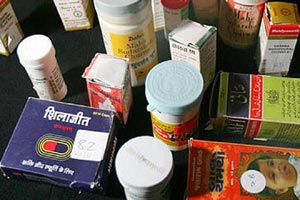The Nepal earthquake has started leaving some tremors on the Indian ayurveda business. Many of the crucial raw-materials for the medicines are now found wanting, after the production areas of these raw materials turned unapproachable after the earthquake devasated road in Nepal and the surrounding areas.
“If the scarcity of crucial raw materials continues , this will affect the medicine production. The price of ayurveda medicines and the treatment costs are likely to increase,” says S Venugopal, a wholesale dealer of ayurveda medicines told FE.
For example, black hellebore (kadukurohini) and chiretta plant (neelavep kiriyat) are vital components in many ayurvedic preparations. The best quality of the herbs grow above 3000 m altitude in the Himalayas. While the rhizome of black hellebore is a must to make a unique “thikthaskanda” ( in the classification of Charakasamhitha), that treats jaundice and epilepsy, the green chiretta plant is used in medicines to cure spleen complaints and piles.
“In several regions, where the ayurvedic industry is growing at a higher rate than that of overall manufacturing, the main challenge is in the raw material sourcing. The specificity of the medicine is such that the ingredients for ayurvedic medicines need to be sources differently,” says Dr D Ramanathan, general secretary, Ayurved Medicine Manufacturers Organisation of India (AMMOI).
The best quality fennel comes from Himachal and this currently costs R125 per kilo. Fennel, in Indian medicine systems is recommended as a digestive tonic, a mild laxative,and a diuretic.
Besides the transportation issues due to earthquake devastation, untimely rainfall had created a dent in the availability of cumin seeds and sweet fennel. Due to short supply after disappointing harvests in Gujarat and Rajastan, the cumin availabity at retail market has been impacted. In the short run, the 20% fall in stocks has already translated to about 7% spurt in wholesale prices. This is like to aggravate at the retail level. Cumin seed is an unavoidable feature in most Ayurvedic concoctions, when the price has touched R192 per kilo.
Although, the kismis production in India is led by Maharashtra, the inflow of Afgan kismis through Nepal roads have always impacted the price of those in offer for Ayurveda medicine production. The road blocks in this supply chain has started taking up the kismis price to R350 per kilo, says traders.
For Updates Check India News; follow us on Facebook and Twitter

